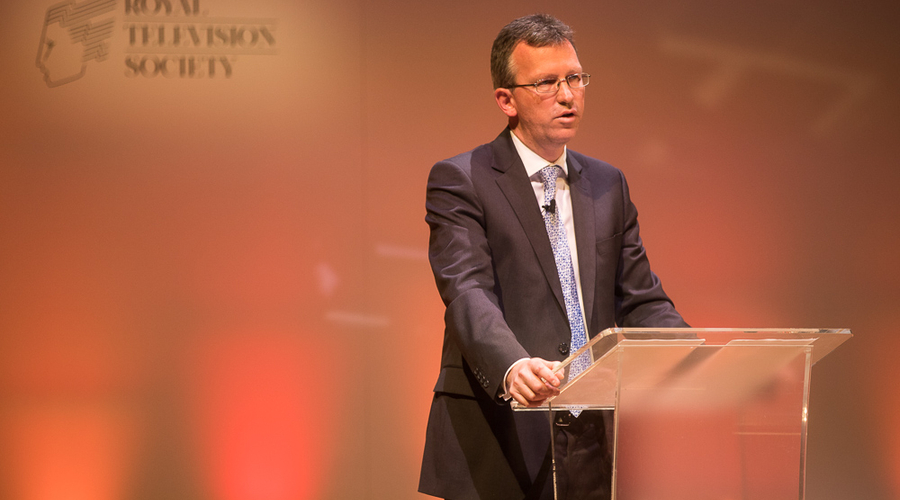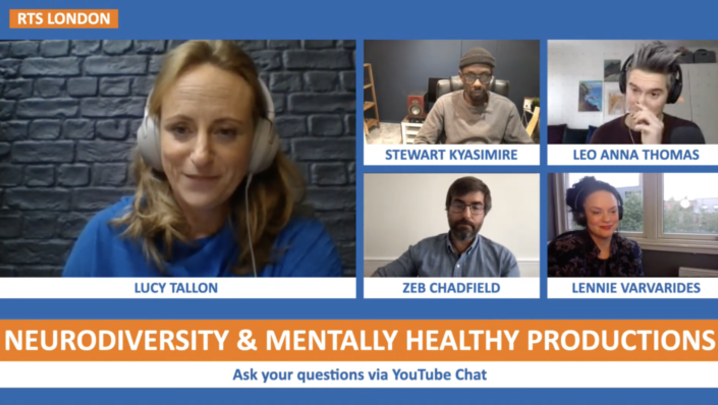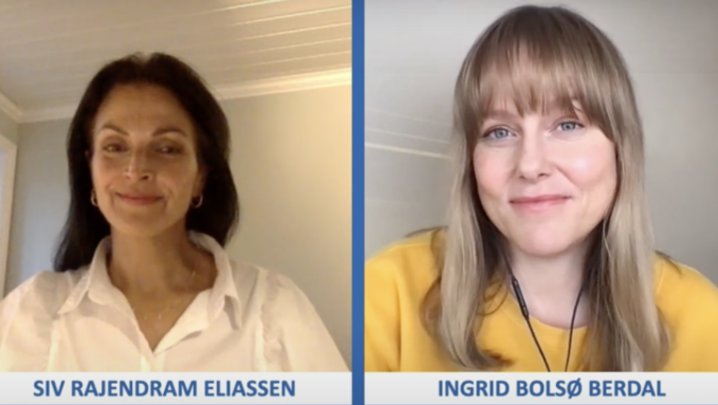The Secretary of State for Digital, Culture, Media and Sport, Jeremy Wright MP spoke out in support of public service broadcasters and high-quality journalism in the face of fake news.
Good afternoon everybody and thank you to the Royal Television Society for inviting me here today.
I feel very fortunate to have been in this wonderful role for three months.
One of the many brilliant things about heading up DCMS is it provides an opportunity to play a part in the blistering advances in technology that are transforming all of our lives.
As leaders in the media and creative industries you know about these advances better than most.
In this rapidly changing and increasingly polarised world, the role of the media is evolving, and in my view becoming more important than ever.
For the media, and for the television industry in particular, trust is a vital commodity.
It may not capture the imagination in quite the same way as a new drama; be as immediately celebrated as an overnight BARB rating; or even be treasured quite as much as new revenue..
But all broadcasters need trust to succeed.
In an era of rapid technological change, infinite consumer choice, and spectacularly-resourced international competition - trust is something that is vital to the success of British media.
So I want to talk today about what the TV industry - and public service broadcasters in particular - can do to maintain that trust, and help us address some of the most pressing issues in our society and democracy.
Disinformation
The most obvious aspect of trust is in relation to the accuracy of news.
Disinformation, and misinformation, is one of the most significant issues of our age.
We have all seen how it can sow discord and pose a risk to free and fair elections.
And in my previous role of Attorney General, I saw firsthand how it can jeopardise our criminal process.
As the digital revolution continues to transform our lives, the potential to disrupt our civil society and democratic institutions becomes greater than ever.
An emerging example is how artificial intelligence can be used to manipulate audio and video content quickly and in ways that make it very hard for consumers to detect.
Now while this has many potentially exciting benefits for the creative industries - such as re-dubbing films and television in different languages - it can also be employed in the creation of what are called ‘deepfakes’.
That is to say very realistic, but nonetheless fake, audio and video content - for example the widely cited video of President Obama that I know you saw earlier.
Given the speed of technological change, it is perhaps no wonder that according to Reuters, only 42 per cent of people trust the news they read.
Crucially, however, 70 per cent of viewers consider television a trustworthy source of news.
This is something for the industry to be proud of. But while TV is still where most adults in the UK turn for their news, this is not true for younger audiences. Indeed Ofcom found that for 82 per cent of 16 to 24 year olds, the Internet is their first port of call.
And yet while people are increasingly turning to the online space for news, less than a third of people believe that most news apps and websites are trustworthy.
As we all know, the Internet, once described by a former executive of Google as “the largest experiment in anarchy” - is not a place where fact and fiction can be easily distinguished.
In our Digital Charter we set out a clear goal to tackle disinformation and misinformation here in the UK. One of the ways we will do this is by giving people the digital literacy and critical thinking skills needed to properly assess online content.
This will add to the important work that has been done by The Times, the Guardian Foundation, the BBC and others in launching projects to improve media literacy.
We are also developing a range of regulatory and non-regulatory measures to improve transparency and accountability online, and thus tackle a range of online harms.
I would like to take this opportunity to spend a moment on one of the most egregious examples of inaccurate information online.
Following the Salisbury incident, Russia has begun a blatant disinformation campaign: with misleading procedural questions and over 40 different official narratives, all false. Many of these were carried and promoted on Kremlin-backed media.
Russia Today, funded by the Russian state, is a major concern.
Ofcom has repeatedly found that RT has been in violation of standards; these include cases when Ofcom say RT’s coverage has been labeled “materially misleading”.
Ofcom currently has 10 investigations into the impartiality of RT’s news and current affairs programmes. I welcome these investigations and I await their conclusions with great interest.
It is true, the tech sector has been taking action, especially Twitter, to make mounting disinformation campaigns more difficult and costly.
This has included the development of algorithms to spot fake accounts and the deletion of hundreds of thousands of suspect accounts, many linked to hostile states such as Russia.
But of course, they can and should do more in this battle. Our democracy depends on it.
And as well as tackling sources of inaccurate information, we want to strengthen and support high quality sources that people can trust. High quality and properly researched journalism is the best possible weapon in our battle against fake news.
And so the sustainability of our high quality media is something that should concern us all.
In March we launched an independent review, chaired by Dame Frances Cairncross, to look at how the production and distribution of high-quality news journalism can be sustained in a changing market, with a particular focus on the online space.
The call for evidence closed just two days ago, and I look forward to Dame Frances’ report and recommendations early next year.
Similarly, the PSBs and other trusted broadcasters have a vital role to play.
As well as continuing to provide high quality news on linear TV, PSBs must also work to reach a wider audience.
And we have seen a lot of success here - for example Channel 4 News: on Facebook they get sixty million views per month - the largest of any British news programme. And last year they had two billion video views across Facebook and YouTube.
It is not for me to tell PSBs, or other major broadcasters, how to operate but I welcome these developments and I am sure we will see more of them in the coming years.
Representation
Of course, the accuracy of news is not the only way for PSBs to generate trust.
Our public service broadcasters are national institutions. For decades, they have entertained, informed and educated; establishing a trust which was inherited from generation to generation.
For a long time this was never in doubt - until 1997 most people only had access to four television channels.
But, of course, the market is now changing rapidly.
Competition for eyeballs, subscriptions, and most importantly time has never been more intense.
Data has become key in the battle to produce the next hit - global media giants with vast audience analysis budgets are operating at a significant advantage.
We often hear how our PSBs struggle to compete against these leviathans - and that may be true in part when it comes to some budgets.
But for the same money that Netflix spent on the first two series of the Crown, the BBC made eighteen series, which were seen by 74% of the population.
Our PSBs have so many unique advantages that they need to exploit to the full.
But as national institutions in a multichannel world, they must also work to secure the trust of the whole UK.
One example is making younger viewers just as engaged in PSB programming as their parents were.
Younger viewers are more open to new technology and more receptive to new brands than any generation before them.
This change in consumption habits is showing no sign of slowing down. So you must reach them where they want to be reached. And they must find you where they expect you to be found.
I want to see the PSBs being nimble, working across platforms, innovating and collaborating. Internationally this has been a success: Britbox is showing the best of British to viewers in the US and Canada. PSBs should not be afraid of building on this success at home.
To support this, we are launching a Contestable Fund pilot, of up to 60 million pounds, to stimulate the provision and plurality of original UK content for young audiences, both on linear TV and on demand.
This will help create new funding avenues for creators of original content and bring new voices to the market.
We will be publishing a policy paper shortly on the final design, and I strongly encourage the commercial PSBs and other free-to-air broadcasters to demonstrate their commitment to young audiences by supporting the fund once it is launched April next year.
PSBs are national institutions and at their best, they have an innate ability to tap into the mood of the nation. This is their competitive edge.
And so it is crucial that these organisations are made up of the people that they serve - both on and off screen.
We all know that people want content that speaks to them and their experiences - this means people from different regions, ethnic backgrounds and social groups. Proper representation is vital to maintaining the trust of different audiences.
83 per cent of viewers think it is important that PSBs portray their region fairly, however only 63 per cent think that they do.
I am very pleased that the BBC and Channel 4 have agreed to increase their regional impact, and I hope other broadcasters will continue to do more.
More than half of black viewers felt that there weren’t enough black people on TV, and when they are, 51 per cent feel that they are portrayed negatively.
This means asking some searching questions too about the makeup of our media organisations. Because to know how to evolve to meet the needs of younger, more diverse audiences as they get older; it is easier if you employ them.
This means providing genuine opportunities for those who have talent but may not yet be the finished product, or might not know the right people.
Michaela Coel talked compellingly in Edinburgh just a few weeks ago about how in her early years in the TV industry she felt like a misfit or an outsider.
As national institutions it is your job to invite people in. By doing so, you will not only create and solidify that trust: you will secure it for generations to come.
So today I am asking you to go further in your efforts.
By doing more to build trust in the accuracy of news through high quality journalism and reporting;
By doing more to provide for diverse, young and UK-wide audiences, and exploring innovative ways to reach them;
And by providing opportunities for under-represented groups both on and off screen.
In exchange, the government will support PSBs to ensure they continue to thrive, and stay prominent, as part of a healthy, sustainable and dynamic media landscape.
So I can assure you I will be looking closely at the results of Ofcom’s work on Prominence, and will work with the PSBs and the whole sector, to ensure the government is playing our part in supporting the future of public service broadcasting at the very heart of our vibrant media sector.
Conclusion
Broadcasting is one of this country’s greatest success stories. Our extraordinary content and talent are respected around the world.
Indeed, the UK recently reclaimed top position in the Global Soft Power Index, driven in large part by our culture and creative industries, not least our superb broadcasting sector.
Shows and formats such as Doctor Who and Bake Off are known and admired the world over, and one study found that among US readers four of the 10 most trusted sources of news are based in Britain.
We need to build on this.
Because a strong media means a strong democracy and a strong nation.
And we cannot be complacent.
Those sowing discord want to undermine this trust and the institutions upon which our liberal democracy relies.
Trust is a precious commodity and bolstering it is vital to our future.
Thank you for the part that you play in this and that you will continue to play; I will be on your side as you do so.
Thank you very much.









